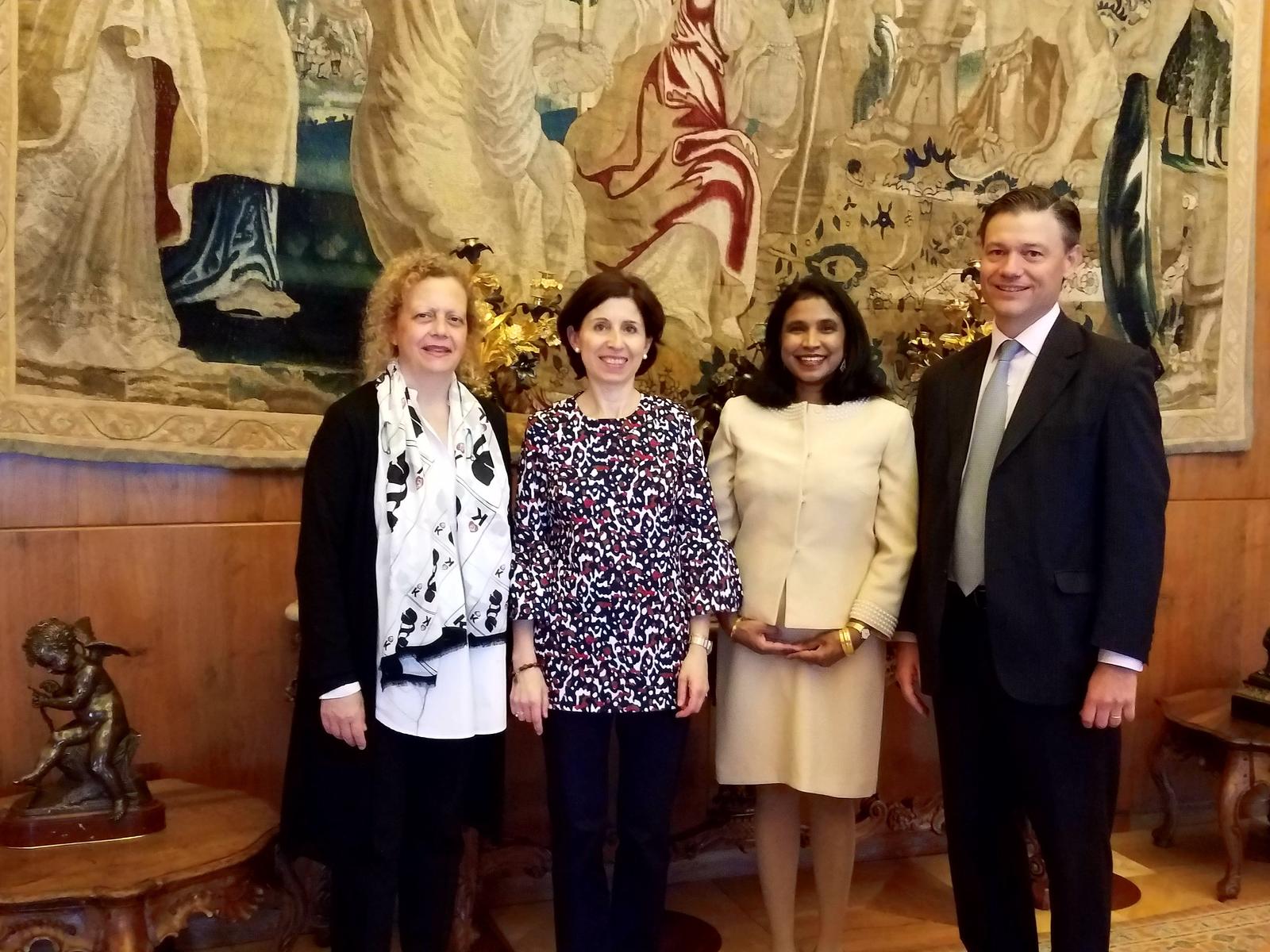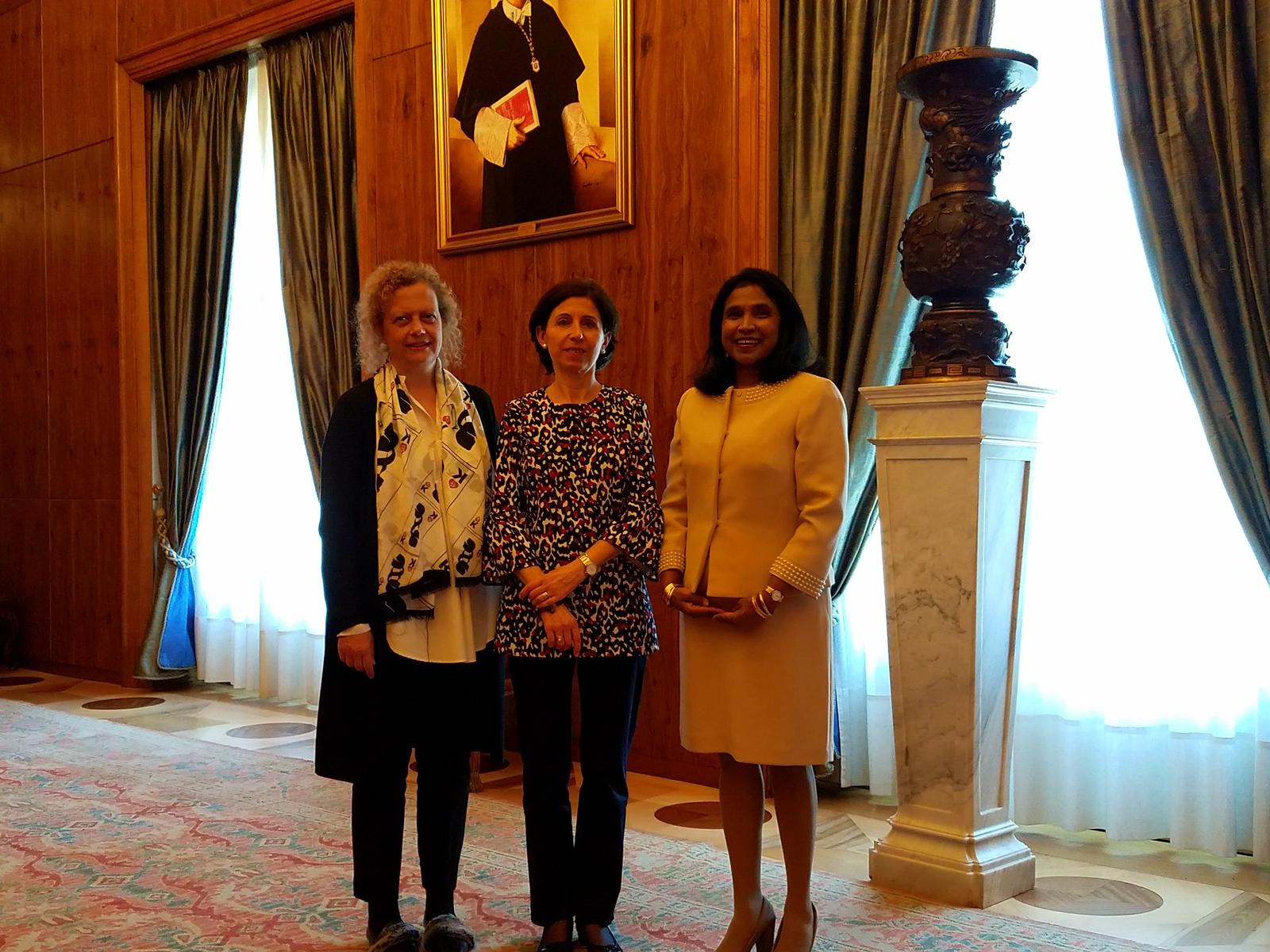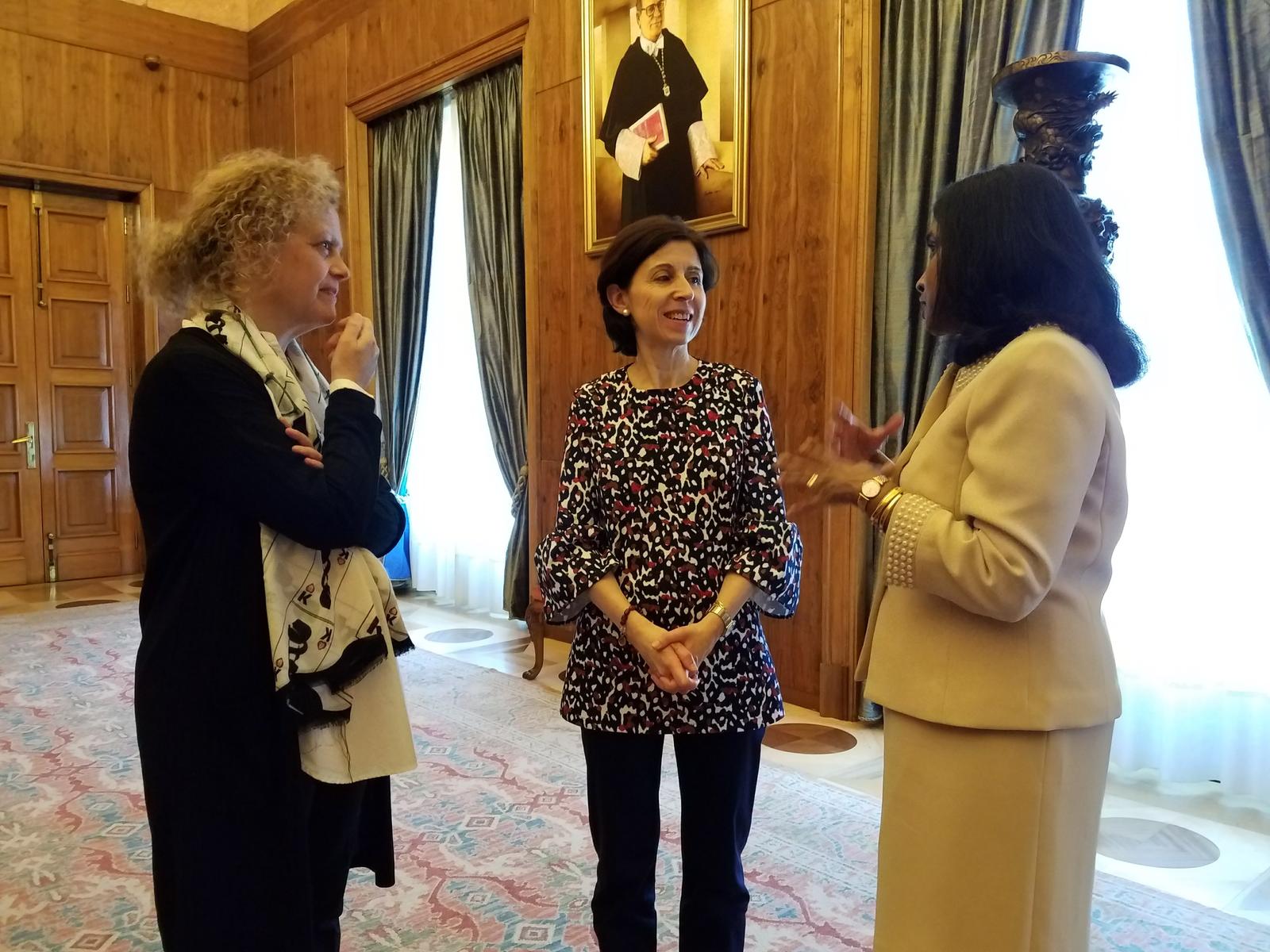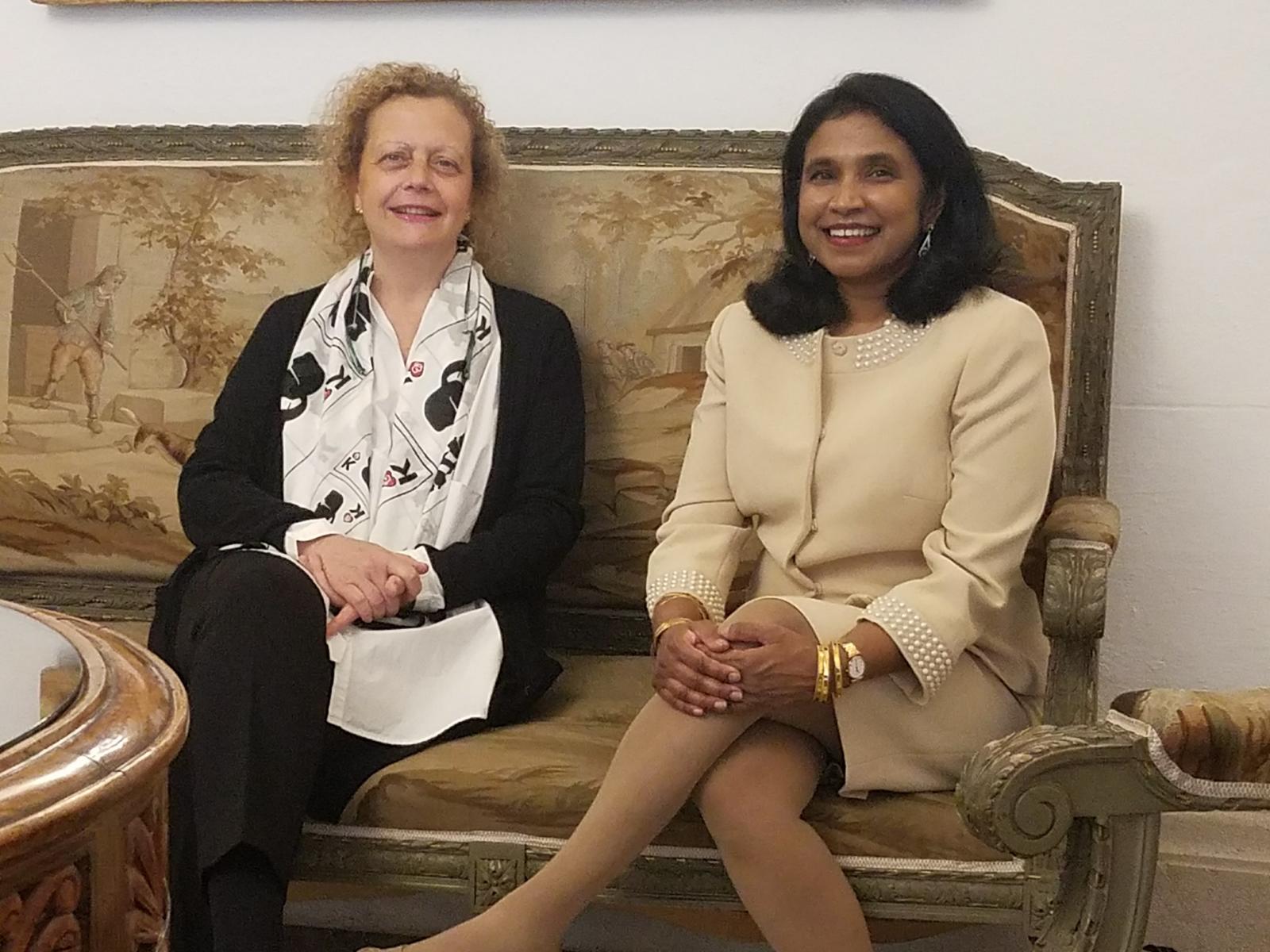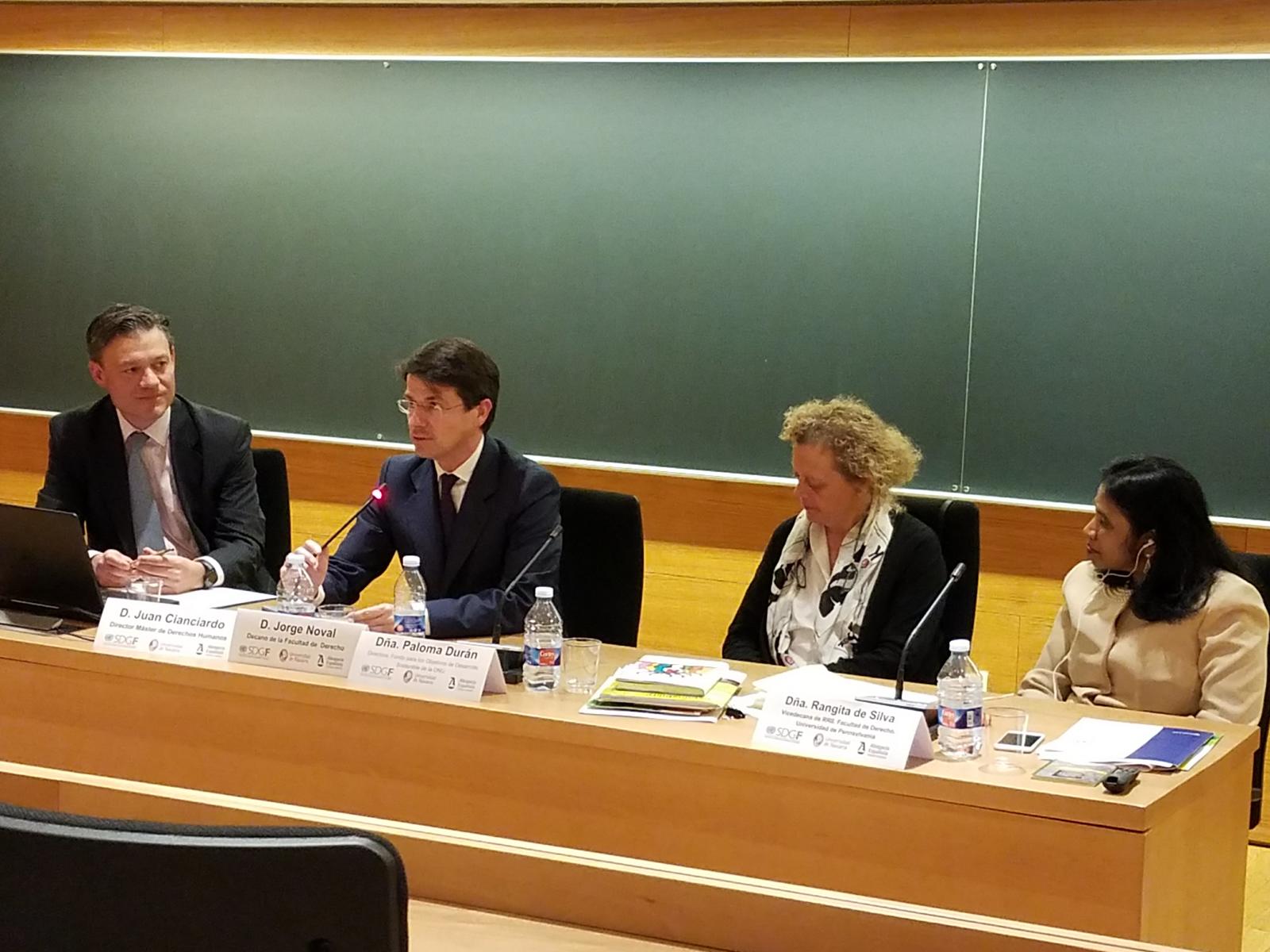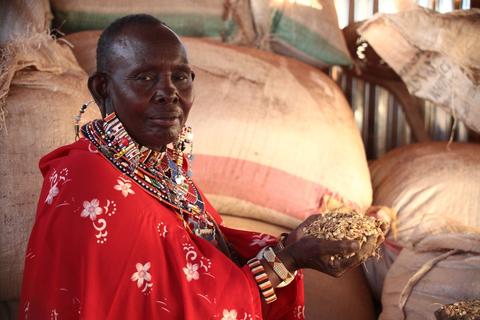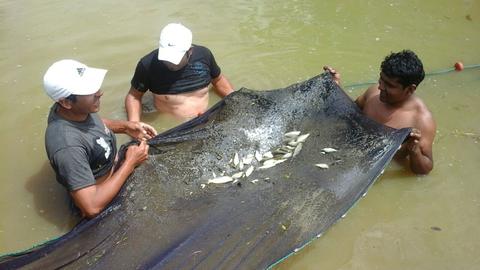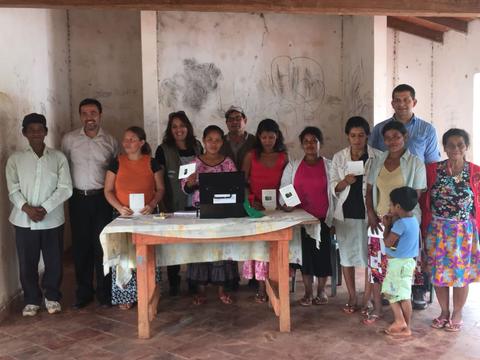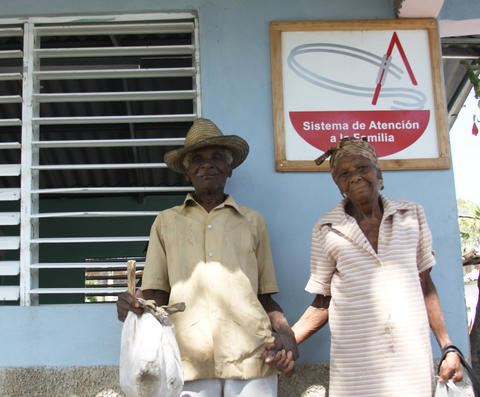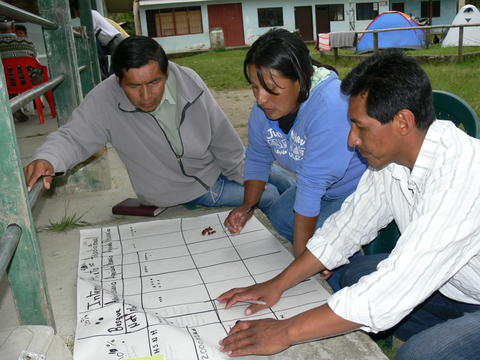April 26, 2018
Bringing access to justice at the core of the 2030 Agenda
The SDG Fund together with the universities of Navarre and Pennsylvania presents key results of a ground breaking project to explore the connections between access to justice and the achievement of SDGs.
Law schools, jurists, judges, law firms, UN representatives, international organizations and even ministers of Justice have participated in a series of dialogues to understand what role should access to justice play for achieving the sustainable development goals. Preliminary findings of this project were presented at the Law School of the University of Navarre in Spain. Following the principle of leaving no one behind at the heart of the 2030 Agenda, participants concluded that unequal - or just plain lack of access to justice - is undermining the achievement of SDGs. A good example, is the case of gender discrimination, still inherently present in many laws, with a cost of over 28 trillion dollars.
For Paloma Duran, SDG Fund director, this project, by engaging a diversity of actors in the justice and law sectors, has shed light on how SDG 16, which promotes building peaceful, inclusive and just societies, and particularly access to justice can be put in practice for building just societies that are indispensable in order to achieve all other SDGs. She thanked all participants in this series of dialogues that started in July 2017 in New York, at the sidelines of the annual High Level Political Forum on Sustainable Development.
The SDG Fund, an interagency mechanism established by the UN in 2017 thanks to an initial contribution of the government of Spain and with projects in 22 countries, decided precisely to open a new line of work on SDG 16, to identify challenges, opportunities and best practices. Indeed, several of the SDG Fund’s joint programmes, she explained, are contributing to greater access to justice, precisely to those who lack it the most. For example, in Central America through a project on youth, security and justice or in Cote d’Ivoire, where legal clinics are allowing thousands of people to access free legal counselling, leading for example to the registration of children, who now with a legal identity can continue schooling and improve their future job opportunities, or women who can exercise rights enshrined in national laws and policies. Duran insisted on the universality of the 2030 Agenda, a central aspect of the new sustainable development paradigm, and key to understand how access to justice is linked to all other SDGs.
Rangita de Silva, Associate Dean of the University of Pennsylvania, focused on SDG 5, and particularly target 5.1., which aims at ending all forms gender discrimination. She argued for dismantling de jure gender discrimination in the Law. She recalled that every single country has at least 4 laws that discriminate, directly or indirectly, against women and remembered that gender discrimination, has a very high cost, 28 trillion dollars per year, according to McKinsey. For example, she reminded that when Ethiopia eliminated the requisite of men to authorize their wives to look for employment, women’s participation in the job market increased substantially and GDP grew by 17%. This is particularly relevant as achieving SDGs has been estimated may need an investment of trillions of dollars per year.
“This is at the heart of achieving SDGs”, she affirms, while calling for “a new generation of lawyers that dismantle these laws”. Describing how today some countries don’t grant women the status of legal head of households, de Silva asked, “how can women be head of states if they can’t even be head of their households?” She reviewed the connection of the Convention on the Elimination of all forms of Discrimination against Women (CEDAW).
Juan Cianciardo, Director of the Master of Human Rights at the University of Navarre, summarized the key conclusions of this initiative: universal access to justice means access for all and in equal extent and its linked with all other SDGs. He highlighted that for the very first time the 2030 Agenda had allowed to integrate access to justice within a global development agreement. “On the discussions and debates we had in the past months with law experts, jurists, judges for several countries and regions of the world, we have seen that we are still far from having universal access to justice” Cianciardo told participants.
“We have heard three concepts of access to justice: access to courts, fair and just treatment of courts and legal assistance to those in greater need and in vulnerable situations”, he remarked. For ensuring that we bring the spirit of the 2030 Agenda into the justice system, he defended that this third concept should be the focus of implementing the Agenda of not leaving one behind, to ensure equality and universality of justice.
This comes with three challenges highlighted by Cianciardo:
- Correct prioritization of those further from having access to justice, as we need to identify those with greater difficulties to have access to justice.
- Institutional strengthening, by ensuring first, the free exercise of the law practice taking into account that every year thousands of lawyers are killed for exercising their profession; second, through a fair distribution of resources to allow fair trial for everyone; and, third, judicial independence.
- Research and gathering of evidence. “We have to deepen and widen our knowledge base on the access to justice in the context of the SDGs”, he stated. This includes more research on how “access to justice is key for SDG 16 and the democracy”. In some of the previous dialogues it had also been recommended to produce regional and national reports on the access to justice.
With a debate with students and law professors, Jorge Noval, Director of Navarre’s Law School, thanked all partners who participated in this project which has contributed to unpack potential challenges and opportunities to make truly inclusive and universal access to justice closer to become a reality.

